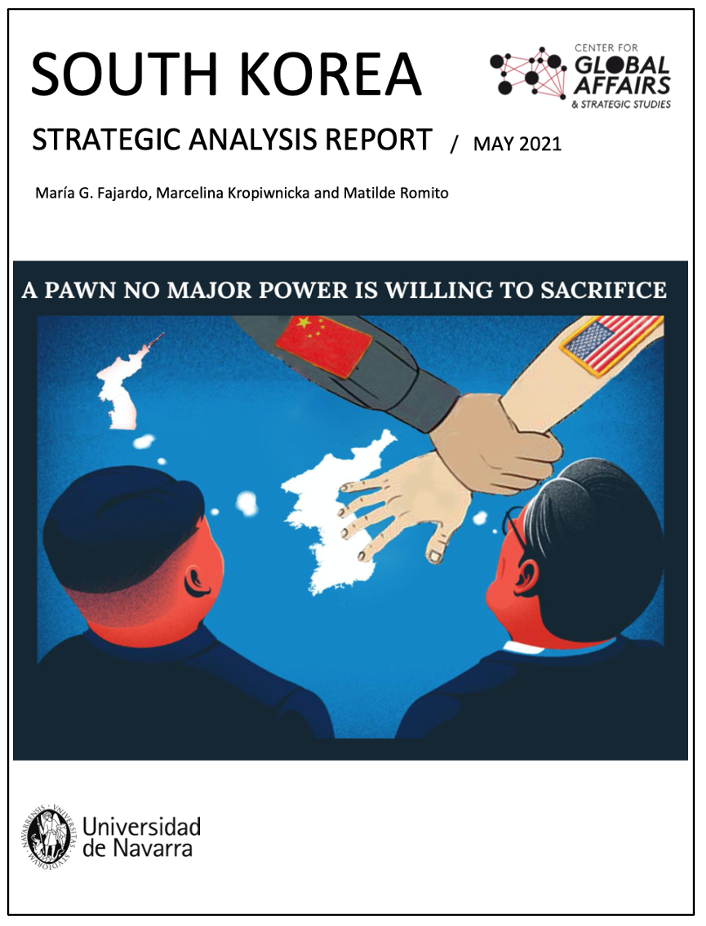STRATEGIC ANALYSIS REPORT / María G. Fajardo, Marcelina Kropiwnicka and Matilde Romito

[Download the document]
May, 2021
EXECUTIVE SUMMARY
The Korean Peninsula is central to the political, economic and military policies of several actors in the East Asia region. Due to its geographical location, the peninsula has seen the involvement of major powers throughout history, like the United States, China, Russia and Japan. Currently, the peninsula is a contested territory between the U.S. and China. The latter is the only country capable of challenging American interests and uses its economic power to increase its sphere of influence in the region.
The DPRK has built and maintained capabilities to target areas as far as U.S. soil. The North has always represented one of the biggest challenges for South Korea and its security guarantor, the U.S. President Biden will nevertheless sway for establishing a network line for Kim to potentially cross and instead, new sanctions could be expected despite their lack of effectiveness.
For the U.S. to maintain its dominant role in the East Asia region, deter North Korea, and keep China in check, it must reaffirm its military and economic alliances which entered into a period of uncertainty during the Trump administration. Currently, China is South Korea's principal trading partner and is openly evading international sanctions imposed on North Korea being its principal trading partner as well.
The prosperous South Korea will remain neutral in many aspects related to China, yet if put in a situation where it has to choose between the U.S. and China, it will incline towards the former, which remains its security guarantor. When it comes to Russia, its role in the Korean conflict is now secondary but over the years, Russia has used the U.S.-China battle to increase relations with the latter. In the case of Japan, a close U.S. ally, a shift in relations with the ROK is unlikely to happen any time soon since their political issues have evolved into legal ones. This will remain detrimental to the U.S' New East China Sea policy which requires cooperation between U.S. allies.
Diplomacy, openness and potential reunification in the peninsula depend on external actors. Neither reunification nor openness are likely to take place in the short term due to Kim's personality and the preference of external actors to maintain the status quo. A reunification led under peaceful terms would be most desirable and would ultimately lead to an even larger economic powerhouse in the region. For the U.S., this pathway would be most beneficial if a reunified Korea would align with the U.S. This would be detrimental, however, to China's geopolitical interests in the region. Russia could come out as being the greatest benefactor from a peaceful reunification. Lastly, Japan could continue to feel threatened by a reunified Korea, which is united by hatred over a colonial past under Japanese savage rule.